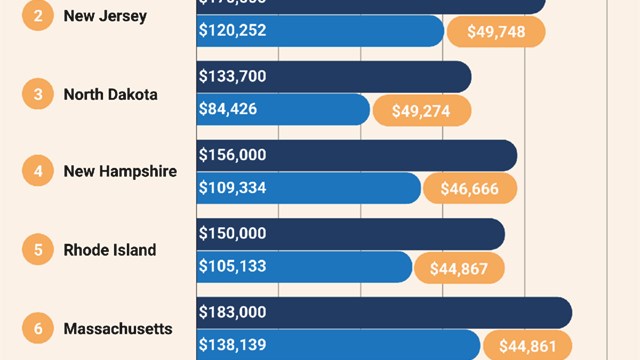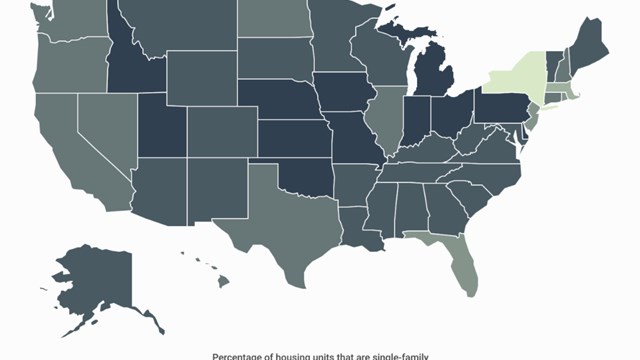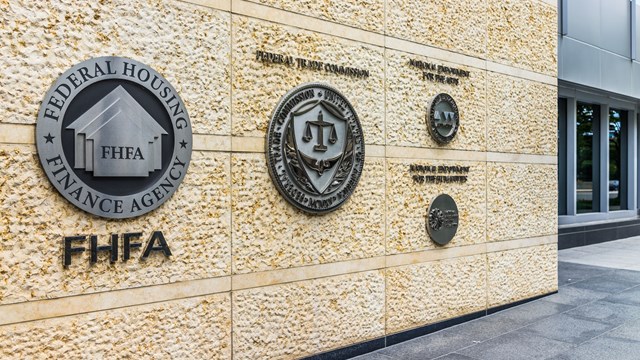Co-op and condo buildings can often seem like their own little self-contained worlds, with drama, politics, and debates aplenty. Given that, it's understandable why shareholder/owners might think the people who run their building—the board members, management companies, and special committees—make all the building decisions that in turn influence the lives of residents.
In reality, however, there are other forces at work that make many of the most important decisions that affect all homeowners, including condo and co-op residents. Unfortunately, few shareholder/owners know who represents them in their state Assembly and Senate. And even fewer know who serves on the committees that debate and pass laws that can have a big impact on their lives and homes.
Who's Who?
People should know who represents them in these matters and how to contact them. Both the state assembly and senate members have websites (assembly.state.ny.us and senate.state.ny.us, respectively) with updates on bills and hearings that can have a great effect on condo and co-op owners' lives. You can also learn who represents you and how to contact them. Assemblyman Brian McLaughlin serves as chairperson of the state Assembly's Real Property Taxation committee. He was elected to the state Legislature in 1992 and represents the 25th district, which includes Flushing, Whitestone, Fresh Meadows, Flushing Heights, Briarwood, Kew Garden Hills, Jamaica, Richmond Hill and Ozone Park. His bio on the Assembly website lists his legislative priorities as criminal justice reform, quality of life, consumer protection, housing, programs and services for senior citizens, and rebuilding New York's infrastructure in order to promote economic and job growth.
Among the issues McLaughlin's committee has examined this year that could affect condo and co-op owners are increases in real tax property assessments placed on renovated and rehabilitated residential homes in New York City. A hearing in April 2005 was held, seeking proposals that might offer some relief to residents whose property class changed because of renovation and resulted in a substantial property tax increase. Among the questions the hearing addressed were what administrative assessment procedures resulted in surges, whether homeowners received assistance from the government when renovating, if property owners were informed of these increases, and what state or local legislation could be introduced that would reduce these changes.
One important piece of pending legislation for condo and co-op owners is A04901, which is sponsored by McLaughlin. The bill describes its purpose as amending "the real property tax law and the real property law, in relation to the assessment of certain residential real property held in condominium or cooperative form of ownership." This piece of legislation, if enacted, would ensure comparative fairness in the method of valuation of comparable residential real property without respect to the form of ownership or title.
"[The bill] is attempting to remedy an abuse of a statutory limitation on the assessments of co-ops and condos which was passed in the 1960s to encourage high-rise affordable housing," says McLaughlin."It restricts the assessments on these buildings to no more than the total rental value of the apartments in the building as opposed to the fair market sales value of the property. Some developers of garden-style homes have been using the co-op or condo form of ownership to lower taxes unfairly. This shifts the burden to other homeowners who have to make up for the reduced taxes of the co-op and condo owners whose properties are not very different in appearance and value."
With this law, McLaughlin says he wants to "create a fair and equitable real property tax system so that properties of like value are taxed similarly."
For every proposal, though, there is resistance. McLaughlin acknowledges that the people who benefit from the current system don't want a change.
"Property owners who have been receiving this tax break feel they are entitled to have it continue, despite it being at the expense of other taxpayers," says the assemblyman.
Some Assembly Required
Assemblyman Vito Lopez is the chairman of the State Assembly Committee on Housing. Among the legislation he has sponsored recently is a bill that prevents owners who rent out their apartments from removing tenants in order to live in the apartment himself or herself or to rent it out to family members. The bill applies to units that had been part of a multiple family garden-type maisonette complex and were subdivided into a structure containing less than six units.
Another Lopez-sponsored bill (A02070) stipulates that residential buildings providing residents with customarily provided essential services should not be interrupted or discontinued, except for when repairs are made in "a reasonably expedient manner, or in the case of an emergency."
Lopez, who has been serving in the state Legislature since 1984, says with pride that he was born and raised in Brooklyn. He graduated from Long Island University's Brooklyn campus with a B.S. in Business Administration and went on to earn a master's degree in social work from the Wurzweiler School of Social Work at Yeshiva University in 1970. According to his Assembly bio, Lopez's priorities including health care, housing, education and public assistance support programs.
As chairman of the Legislature's housing committee, Lopez recently presided over hearings that explored the state of affordable housing on Staten Island and the future of the Neighborhood and Rural Preservation programs. In 2004, the committee examined affordable housing in New York State for people with disabilities and how zoning changes affect affordable housing.
Earlier this year, Lopez, Mayor Bloomberg and Department of Housing Preservation and Development (HPD) commissioner Shaun Donovan announced that New York City service providers would be uniting to connect residents of Bushwick, Brooklyn with housing and healthcare services. The Bushwick Initiative alliance was formed with a view to improving the quality of life in the economically disadvantaged area.
"The Bushwick Initiative is essential for the future of our neighborhood," says Lopez. "It's a unique collaboration that will allow for the preservation and revitalization of one of the poorest areas of both Bushwick and the city as a whole. I'm looking forward to working with the mayor's administration and the community residents and leaders to make Bushwick a safer, more vibrant and more affordable place for families to live."
The State of Affairs
In the state Senate, the housing committee is chaired by John J. Bonacic, who was elected to his office in 1998. He was born in New York City and graduated from Iona University in 1964 with a degree in economics. He graduated from Fordham Law School in 1968 and is currently of counsel to the law firm of Bonacic, LoBiondo & Krahulik, LLP in Middletown. He has served as an assistant district attorney for Orange County as well, but his political career began in 1972 when he was elected to the Orange County Legislature.
As usual, affordable housing is a big issue in New York this year. Earlier in the legislative session, Bonacic held public hearings on the issue in relation to Senate bill S00164, which, says Bonacic, "would allow voters to decide whether they want to abolish the school property tax on homes and shift the local share of the costs to an income tax-based system."
"This legislation was introduced to provide a realistic solution to the ever-increasing and inequitable property tax burden placed on New York's homeowners to fund our schools," says Bonacic. "I was pleased to see representatives from a variety of organizations testify--they provided valuable input that will help build on the foundation of this proposal and help craft structural reform. Their input was a positive step, and will be extremely helpful in creating a broader tax method which will make homeownership more affordable for the middle class and those working to become part of the middle class--as well as seniors who no longer have a great income level."
Bonacic says that that he is planning on holding several more public hearings throughout New York State, and the bill is presently before the Housing, Construction and Community Development committee for review. "I hope to obtain as much input as possible from as many individuals and groups who are impacted by this proposal," he says. "The goal is to create a strong, equitable, and sound public policy."
And regardless of what side of the aisle they occupy, or what committee they chair, that's the goal of every lawmaker in Albany--to please the constituency, represent their district, and work toward making the state a better place than when they were elected.
For a sidebar story on pending legislation, click here.










Leave a Comment